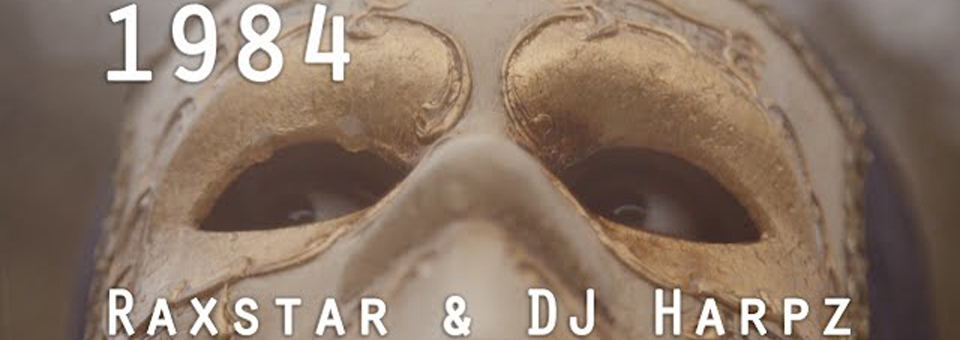Watching a re-run of Stan Lee’s ‘Spiderman’ late last night, a particular quotation synonymous with the series, and uttered by that relatively unremarkable ideologue, Uncle Ben, got me thinking with respect to current events taking place in ‘Sikhdom’. Having been tragically gunned down, a dying Uncle Ben gasps to a shocked Peter Parker a mantra by which life should be led – ‘with great power comes great responsibility’. Originally attributed to Voltaire, Roosevelt, and even Jesus, such morality is clearly something the Indian press is in need of. And in copious amounts too.
Following the attack on K S Brar, the man who led the assault on the Harmandir Sahib complex in 1984, the Indian Press were quick – actually too quick, as the Metropolitan Police had not yet released a statement of the attack, let alone knew who did it – to point the finger at what were designated ‘Diasporic Sikh extremists’. And to ramp up the rhetoric even more it was suggested, once again without evidence, that Sikh ‘extremism’ was on the rise outside of India.
Sikhs all over the world have now been forced to respond and defend themselves from these baseless accusations. Trailing through Indian news forums it is clear, however, that many Indians wholeheartedly believe these Press-led assumptions. Perhaps a riposte is in order.
So, how do we go about analysing this Sikh ‘extremism’, and if it exists, is it actually on the rise in the diaspora? The first thing to do is to evaluate what the Indian Press essentially believes Sikh ‘extremism’ entails. On this definition they are fairly silent – with only the concept of ‘Khalistan’ being profusely written about. So according to the Indian media, believers in a sovereign Sikh state are synonymous with Sikh extremists. I wonder what the likes of George Washington, Jomo Kenyatta and Vaclav Havel would have said at this point.
Yet more importantly, beyond labels, we find the crux of the problem. That is that Sikh voices which are critical of the state and its governance can be dismissed through the appending of labels. If you’ve got a rival, even if he has got a point, call him an extremist and you destroy his credibility. Try doing that with an entire community – it works too.
So the Indian Press’ dreaded ‘Sikh extremists’ who live in the diaspora, are in my opinion simply voices, from the young to the old, that challenge the Indian government to be better and more accountable. That they do this from the comfort of armchairs and laptops thousands of miles away is of sheer inconsequence. As a human being I am entitled to comment on the plight of humanity be it in London or Punjab.
Relatively secure and settled, the UK Sikh population is part and parcel of the most educated Britons in the land. As part of that education, individuals have taken proactive roles in bringing their government to account – just look at the Turban Law, and fundamentally to read, write and ponder. And the same applies to how they now approach the country of their ethnic origin. They want India to be held accountable for its actions, based not on their understandings of law, but India’s own. But then why does the Indian Press find this so hard to digest?
Well, because it’s not in their interests to do so. Over-sensationalised plots and conspiracies to bring down the Indian nation, be they Naxalites, ISI or Sikh Separatists, make for a great read, but the inherent disinterest to uncover factual evidence lies deeper within the psyche and make-up of India’s press. Following the illegal Indian Emergency of 1975, Indira Gandhi suppressed the Indian Press, making it, and other institutions, vehicles of government propaganda. During this greatest threat to India’s democracy, Sikhs in the Punjab provided the backbone for resistance against her draconian measures. Just look at the stats – according to Amnesty International out of the 140,000 arrested throughout India in defiance of the Emergency, 40,000 were Sikh. Indira never forgave the Sikhs, turning them into the Jews of Nazi Germany, utilising the press to push home the message that Sikhs were unruly anti-nationals – a suspect community.
The effect of this meant that any legitimate Sikh concern – and Sikhs being Sikhs were working in the interests of all Indians – was denounced, through the press, as secessionist. Just take a look at what happened to the Anandpur Sahib Resolution, the concept for a modern Punjab, which talked specifically about centre-state relations and the need for the former to relinquish a little over the latter for a greater and more conducive India.
Over the next few decades, the Indian Press became ‘freer’, in that it did not quite resemble what it was like during Indira Gandhi’s time. But as a series of comments by senior officials and commentators earlier this year uncovered, it has become lackadaisical, being characterised by factual inaccuracies, and has a serious class-bias in what news should be covered or omitted. Economist Amaryta Sen recently went even further in stating that most Indian newsrooms have no practice of editorial training, and a survey found that 90% of decision makers in news were from the upper castes. Yet most shockingly, in the run up to the 2009 elections, the scourge of paid news – where influential people (mainly politicians) pay newspapers and news channels for positive coverage – dominated to a point where an investigation was undertaken and a report, which was incidentally watered down after pressure from a series of Mr. Big’s, found that senior politicians and serious sums were involved.
Taking such dispositions into account, we can begin to postulate that the Indian Press is currently a seriously flawed machine, which from lazy reporting through to class agendas and money, views Sikh issues through the lens of misconceptions formulated during its years under the whip of Indira Gandhi. With this level of misunderstanding as base from which all subsequent reporting springs from, it is clear that what the Indian Press needs right now is a non-partisan re-evaluation of the issues during the 1980s and 90s. In the words of Joseph Pulitzer:
“The Republic and its press will rise or fall together. An able, disinterested, public-spirited press, with trained intelligence to know the right and courage to do it, can preserve that public virtue without which popular government is a sham and a mockery. A cynical, mercenary, demagogic press will produce in time a people as base as itself. The power to mould the future of the Republic will be in the hands of the journalists of future generations.”





